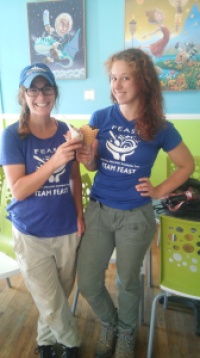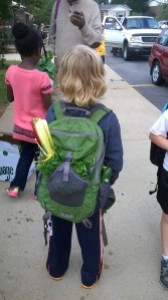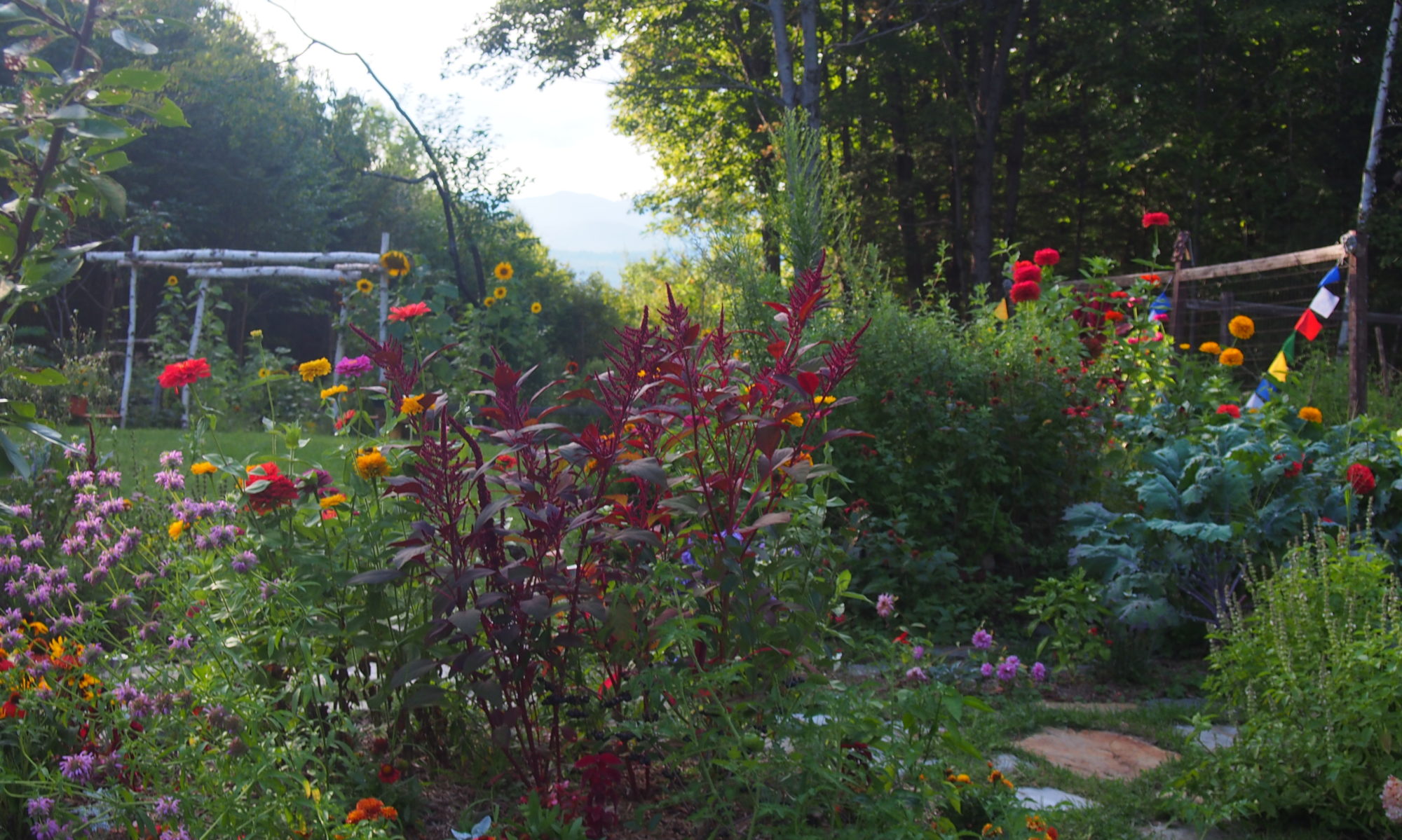Southern Exposure
By: Elizabeth Villano
On my way up to the homestead, my GPS cut out. “No service!!”, my phone cheerfully rubbed in my face. As I slowed to a stop, I surveyed the gorgeous mountains around me- surely the same ones that were scrambling my previously taken for granted cell service. After finding SMC, it didn’t take me long to discover an eclectic community hidden in the idyllic Blue Ridge mountains, one that constantly surprised me with its generosity, curiosity, and passion. I found good friends, even better food, and a space to explore who I was and where I wanted to go.
As a member of the Food Access crew, a kick-butt dynamic duo composed of Jess and myself, we focus on bridging gaps in the food system. And if that seems vague and liberal artsy, we thought so too until we got down and dirty with a month of learning from incredible women (as I affectionately took to calling them, our boss ladies) about the tireless work they do to ensure everyone gets the education and food they deserve.

Before I get into what we did, it’s important I take a moment to talk about what food access is, and what gaps in the system actually look like. While it may sound daunting by name, the food system is everything and everybody that goes into producing, distributing, purchasing, and consuming food on a global scale. In 2015, 42.2 million of Americans lived in food insecure households (lack of access to healthy and fresh food), including 13 million children. North Carolina, the state we work in, comes in at number eight, with 15.5% of the population reported food insecure. Food insecurity is a pretty name for a serious issue- children who face food insecurity face potentially irreversible developmental stunting. Latino and black communities, both of which face disproportionately high levels of food insecurity, face continuous and systematic blows to their communities, increasing risk factors for disease, poverty, stunting. (Source: Feedingamerica.org) Food affects us all- when you’re hungry, or when you only have access to highly processed and unhealthy food, you can’t think as well, your body doesn’t work as well, you’re more at risk for injury, disease, malnutrition. And beyond basic human rights, you’re not as productive- food insecurities have been causally linked with decreases in GDPs. (Source: WHO). To learn more, watch this engaging and incredibly informative John Oliver episode.

We started off our whirlwind tour with FEAST, an incredible and well-respected organization based in Asheville, NC that seeks to empower youth and families to learn about food, and to eat healthy. We were stationed with two teachers, Miss Jordan and Miss Summer at two different elementary schools: Vance and Fletcher Hall Elementary School respectively. Both women ran community, learning based gardens that were incorporated into the curriculum at each school. In addition to the monstrous task of caring for a garden, both were able to find innovative and engaging ways to engage the kids with gardening, growing and cooking fresh vegetables. One lesson that stood out was one that Jordan did at Vance, where she told the kids that they were a part of an alien race that was having a lot of trouble growing food, and were sent to Earth to figure out how we were growing food so well. We helped them sift through the dirt and take notes about different types of soil retention and composition. The FEAST model works to establish an early foundation of environmental stewardship, while simultaneously broadening children’s exposure to fresh and healthy produce- and teaching them how to use it. Some of my best memories from SMC have been playing with kids, teaching them to love gardening.
We also had the opportunity to work with Dig In, a community garden based in our hometown of Burnsville, NC that grows tons (literally) of fresh produce, and donates it all to food insecure families in the area. Dig In, a powerful and resourceful nonprofit, is run by two powerful women, Kathleen and Olivia. Dig In is unique in the emphasis they place on community empowerment- they don’t just grow produce, they create a community that rallies around their battle cry. Kathleen, as we very quickly realized, knew just about everyone there was to know, and managed to get them all thinking about food access. From an elderly farmer named Kermit across the road from their facilities who was quick to volunteer his equipment, to a new area transplant looking for community and good work, Kathleen and Olivia were so successful that people all the way in Asheville had heard about our work. One day that I will always remember was a gleaning session we did in a nearby field. On a typical farm, when a farmer has already gone through their field and taken all of their crop that they could sell, they leave the rest of it to rot. Most of the food is left for aesthetic reasons- too small, a weird shape, has something growing on the outside. Gleaning is when a group of volunteers comes and takes the food to people who need it. We moved about 7000 pounds of squash off the field to food banks in the area- food that otherwise would have gone to waste. Dig In firmly believes that lower income people should not have “seconds”, that they deserve healthy and organic food to be grown for them just as everyone else receives. Their humanistic and empathetic approach to the food system left both Jess and I feeling touched, and proud to have worked with them.

We’ve been fortunate enough to work with a diverse array of incredible people, and learn about their innovative solutions to tackling such a large problem. I know I’ll be taking these experiences with me, and keeping in touch with the incredible people we met along the way!

